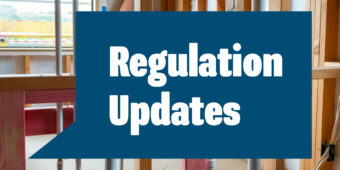How to avoid costly disputes
29 Aug 2016, Featured, Legal, Prove Your Know How

This month we look at some of the common causes of disputes within the construction industry, how to avoid them, and how to minimise the effect they have on a project should they become a problem
The majority of disputes are resolved without the need to trigger a formal resolution process, but early resolution or not, disputes can dramatically increase the emotional and financial costs on the parties involved in a project.
Inadequate design
A common cause of problems is where the design is incomplete or defective. This is not usually discovered until work has commenced. Design problems can lead to expensive additional work required to fix the problems and in some cases may even require completed work to be removed and replaced.
All parties involved in the project should – together if possible – conduct a thorough review of the designs and plans to anticipate any problems. This should be done before the project is priced and certainly before any contracts are signed.
Poor contracts
Many contracts are signed with deficient or inappropriate clauses. Alternatively, a contract may not be appropriate for the particular project or may not address some of the key items.
Another issue could be that one or both parties do not fully understand the terms. Any party presented with a contract to sign should take a step back and consider their risks on each project.
The golden rule is that a contract prepared by one party will usually attempt to place an unfair amount of risk on the other party. All parties to a project should assess how the contract addresses their main risks and request changes if need be.
Taking legal advice is important, especially where tight margins are involved. Costs involved with a dispute could easily wipe out those margins.
Contentious clauses
Delays in completing the works on time are a common ground for dispute. Contractors must be realistic if they are asked to agree to finish a project by a specified date – contracts must provide for extensions of time in certain circumstances, such as where the project is affected by bad weather.
Another common cause for dispute relates to the contractor’s rights to adjust the price during the project. Contractors should make sure they are able to claim extra expenses where unforeseen matters result in additional works being necessary. Principals will want to narrow down the contractor’s opportunities in the contract to increase the price.
Contract administration
Poor administration of the contract is another cause of construction disputes. If variations and other changes to the contract are not recorded accurately and in accordance with the contract, this can create problems later on.
Once you have agreed on the terms of the contract, it is important to work in accordance with it. Understand your rights and responsibilities and follow the procedures set out in the contract.
Often there is a lot of pressure during the construction phase to make changes at short notice, where variations – especially are agreed orally on site and not recorded in writing. There may be no agreement of the price to be paid for the variation at the time when the work is carried out.
If you do not agree the cost of a variation, or do not follow the correct procedure for dealing with variations, especially as set out in the Building Act for residential contracts over $30,000 – you may later end up in dispute.
It is also important that payment claims and payment schedules are issued on time and comply with the Construction Contracts Act. Specific information must go into those documents or they will be ineffective. If there is any dispute about any of the items in the payment claim, it needs to be recorded clearly on the payment schedule.
If an issue does arise on the site, it should be addressed as quickly as possible. If the issue is ignored or there is insufficient communication between the parties, it could result in a bigger dispute later. Communication is essential!
If a dispute arises:
- Check the contract to make sure that procedures are followed correctly.
- Make sure that payment claims and schedules are issued on time and in accordance with the Construction Contracts Act.
- Check what documentation is available relating to the dispute and make sure there is a good understanding of what occurred by speaking to staff or representatives on site.
- Get advice from a professional. This could save time and costs later.
MELISSA BORCOSKI
 Melissa is a partner at Saunders Robinson Brown and is the leader of Saunders Robinson Brown’s Litigation Team. Melissa specialises in commercial and civil litigation, and also has specialist expertise in insurance law. For more information regarding contract disputes, contact Melissa on 03 377 4470 or
Melissa is a partner at Saunders Robinson Brown and is the leader of Saunders Robinson Brown’s Litigation Team. Melissa specialises in commercial and civil litigation, and also has specialist expertise in insurance law. For more information regarding contract disputes, contact Melissa on 03 377 4470 or
melissa.borcoski@srblaw.co.nz
Register to earn LBP Points Sign in



